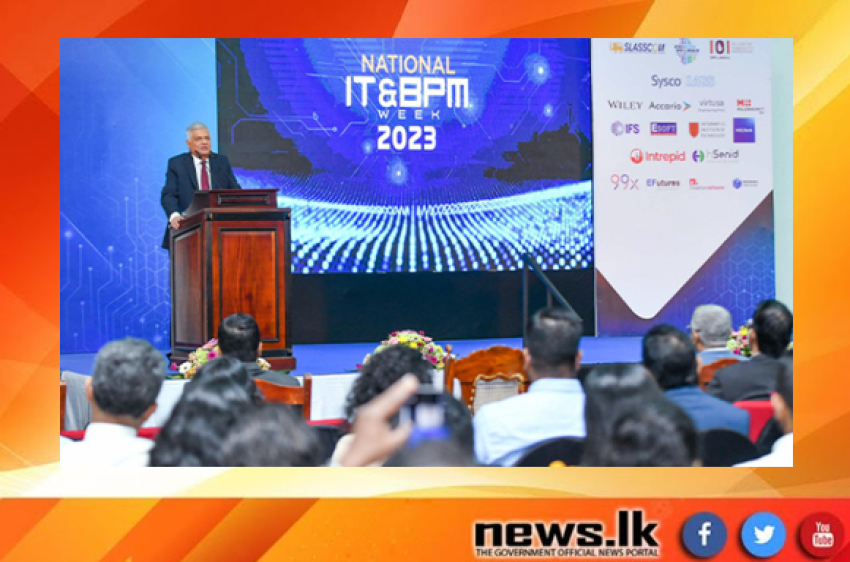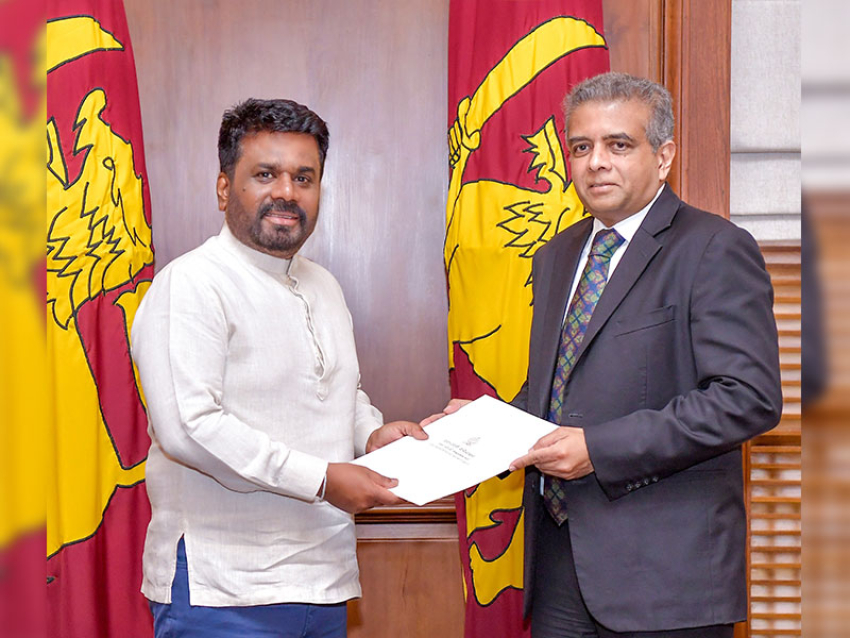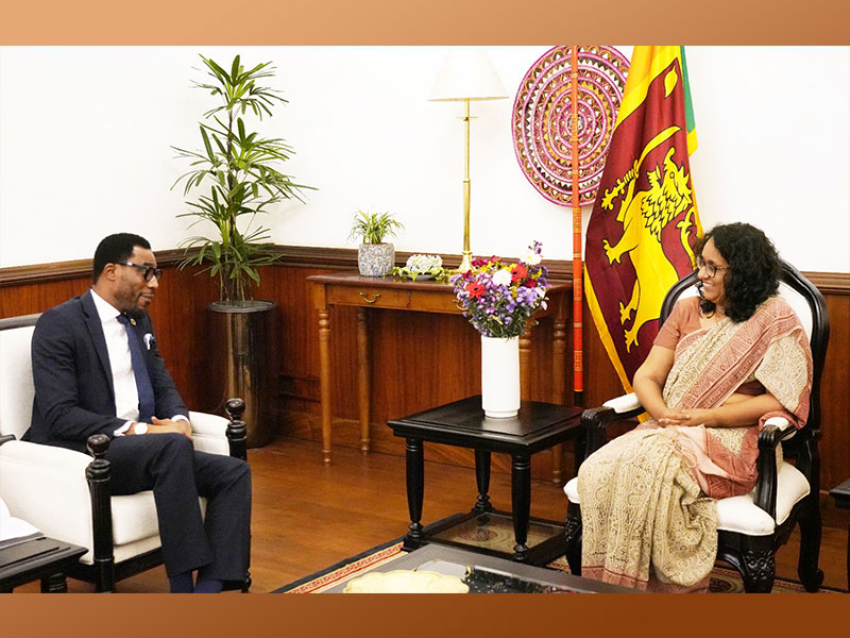President Ranil Wickremesinghe, during the inauguration of the National Information Technology and Business Process Management Professional (IT & BPM) Exhibition at Sirimavo Bandaranaike Hall yesterday (11), opened the doors for active participation of the private sector in the nation’s journey toward a technology-driven and eco-friendly green economy.
Commencing the National IT and BPM Week, the exhibition will be held from October 11 to 13 at the Sirimavo Bandaranaike Memorial Exhibition Hall in Colombo.
The exhibition, aimed at accelerating Sri Lanka’s transition to a digital economy, seeks to provide insights into new technology, promote skill development, offer career guidance and create avenues for IT entrepreneurship. It is expected to benefit school students, university students, vocational education candidates, job seekers and aspiring entrepreneurs in the Western Province.
As part of this three-day event, opportunities for industry and career counselling, internships, job placements and workshops on IT and business processes will be offered by technical education institutions.
In his address, President Wickremesinghe highlighted the aspirations of many exhibition attendees to seek opportunities abroad. He encouraged a shift in focus towards how the nation can benefit from the event. With Sri Lanka’s economy in recovery, the President stressed the importance of not only achieving economic stability but also addressing the repayment of loans and fulfilling import requirements, all necessitating foreign exchange reserves that might require additional loans.
The President underscored the need to break free from the debt cycle and move toward a highly competitive economy capable of thriving in the global marketplace. The goal is to augment revenue streams through both goods and services, with the expectation that such efforts will attract Sri Lankans who have left the country to return home. Key to this transformation is the three-pronged strategy of creating a competitive economy, fostering a sustainable green economy and advancing the digital economy. Notably, the digital economy requires a skilled workforce proficient in information technology.
In this regard, Sri Lanka is embarking on the establishment of a new university system, with plans to launch three universities based on the Kotelawala Defence University model. Additionally, the nation is encouraging the creation of non-government universities, with the vision that they will reinvest profits into education, similar to esteemed institutions like Harvard and Cambridge.
The President emphasized the importance of establishing numerous new universities to impart advanced technological knowledge, along with the integration of 450 vocational training centres and the launch of vocational colleges. Professional training programs are being modernized and measures are being taken to introduce new technology into schools.
Sri Lanka’s future hinges on its technological and green sectors. The country’s legacy of transitions, from paddy cultivation to cinnamon, coffee, tea, rubber and the present emphasis on tourism and the garment industry, is now in the past. The future beckons and to thrive in it, the nation must continually educate and produce skilled individuals, even exceeding domestic demands.
President Wickremesinghe also recognized that the future of Sri Lanka lies in the technology and green sectors, requiring comprehensive training initiatives to produce a workforce exceeding the country’s immediate needs. He encouraged citizens to explore job opportunities within Sri Lanka, a move that not only bolsters the local economy but also reduces the outflow of foreign exchange.
The declining populations in East Asian countries, such as Japan, China and South Korea, present an opportunity for Sri Lanka to source skilled labour and the President called for cooperation in capturing this potential.
President Wickremesinghe concluded by posing a direct question to the audience, asking about their readiness to participate in this transformative journey. He noted the involvement of Prime Minister’s Secretary Mr. Anura Dissanayake and secretaries from relevant ministries.
The President highlighted the potential for new factories, driven by cutting-edge technology, to create new career opportunities, providing a solution to the challenges faced by many unemployed individuals today. He urged stakeholders to share their responses and collaborate in shaping a brighter future for Sri Lanka.
Key figures present at the event included Minister of Technology Kanaka Herath, Prime Minister’s Secretary Mr. Anura Dissanayake, Secretary of the Ministry of Technology Professor A.D. Gunawardena, Director (Development) of the Ministry of Technology Mr. Janaka Sampath Geekianage, National Future Skills Initiatives Institute (NFTI) President Mr. Madhu Ratnayake, Sri Lanka Society for Software Services Companies (SLASSCOM) President Mr. Jehan Perinpanayagam and DIGIECON 2023-2030 Project Director Mr. Prasad Samarawickrama, among others.
PMD



















